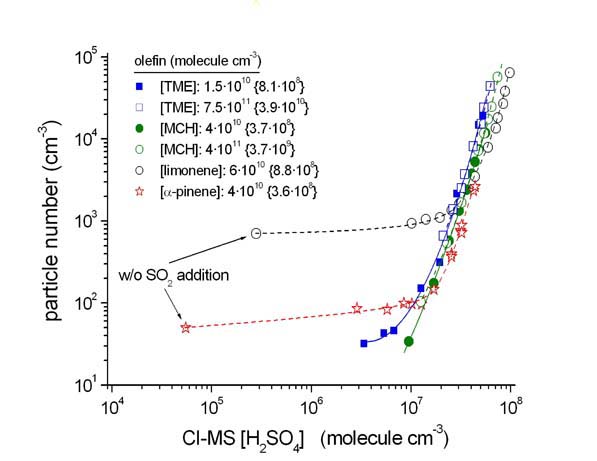Intensive research is carried out at TROPOS regarding the formation and the early growth of aerosol particles for close to atmospheric conditions. The experiments are focused on the system H2SO4/H2O. Time scales considered are in the range of up to 100 sec. The aims of the research are:
- basic understanding of the steps involved in the process of particle formation,
- important parameters influencing the rate of particle formation in the system H2SO4/H2O (T, RH, amines/ammonia, organic oxidation products),
- new formation pathways for H2SO4 other than via OH + SO2 (importance of stabilized Criegee Intermediates),
- qualitative findings for the role of amines/ammonia and (highly oxidized) organic compounds for the early growth of particles.
As a results of this work essential contributions have been achieved in the understanding of the process of H2SO4/H2O particle formation (Berndt et al., Science, 2005; Sipilä et al., 2010; Petäjä et al., 2011), the importance of amines/ammonia for the rate of particle formation (Berndt et al., 2010) and the role of the reaction of stabilized Criegee Intermediates with SO2 (Mauldin et al., 2012).


